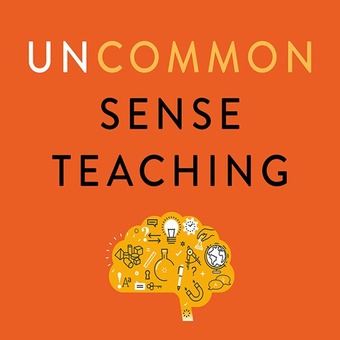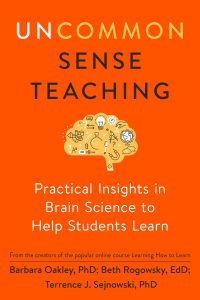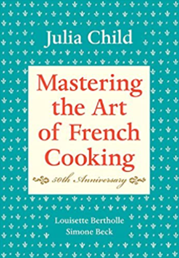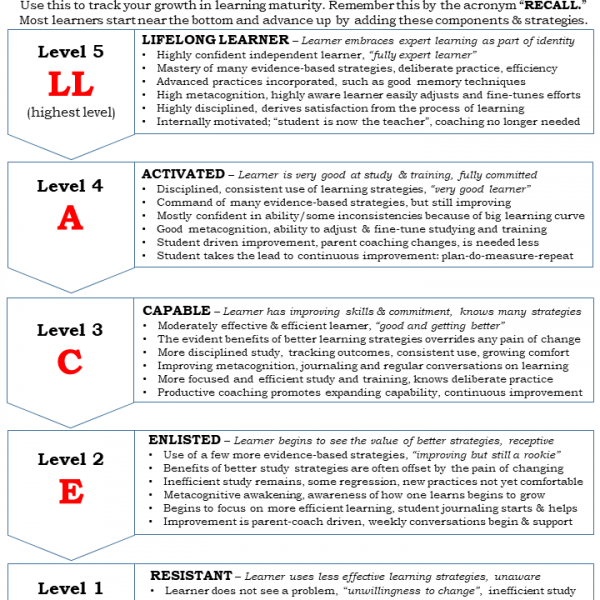
Book Review: Uncommon Sense Teaching

Reading time: 6 minutes
Practical Insights in Brain Science to Help Students Learn
Is there an easy way to polish your homeschool teaching skills, so you can confidently teach like a pro? Yes! The quickest way is through this path – learn about brain science and get lots of practical insights from this book – because good teaching is built on the foundation of a fundamental understanding of how kids (and adults) learn.
This book, Uncommon Sense Teaching, explains learning from a neuroscience perspective, but in easy-to-understand terms that you can apply to be a better instructor of most anything. Don’t hesitate about the science, the authors know how to explain it in a way that everyone can not only understand, but quickly apply to teaching.
This is not one of those difficult dives into an academic hell that can make your brain, along with your hair, hurt. I hate those. What you do get is a highly readable book to use as a valuable resource for your homeschooling instruction. It has lots of ideas for everyone – from the beginning homeschooler to the most experienced veteran. Tips, ideas, concepts, techniques are all here in a conversational style served in bite-sized portions for you.
A Remarkable Read
I don’t recommend books often because everyone wants different things, but I love this new book by Barb Oakley and her colleagues – neuroscientist Terrence Sejnowski and expert educator Beth Rogowski. Uncommon Sense Teaching is a must-have read because it is stuffed with great ideas any parent can apply to your homeschool teaching right away. It is written for a broad audience – basically, anyone who wants to teach others and do it well.

This book provides a fresh perspective on learning with lots of new ideas that can help you jumpstart your home classroom using the curriculum you already have.
And again, this is not another academic zombie that will put you to sleep like an eight-course meal with too much wine. The writing style is fun and breezy, typical for Barb, and the examples make it easy to visualize the concepts and connect them to your teaching. It has the power to switch on that inner light bulb in your mind.
Don’t inject uncertainty into your homeschool teaching by unnecessarily questioning yourself and wondering if you are doing things right or doing the right things. This book will provide you guidance with the latest scientific principles on learning and teaching. Eliminate those hunger pangs of doubt with solid principles.
The truth is, if we desire to be good at anything, we first need to get the fundamentals right. This book does that.
A Lifetime Skill Worth Improving
Let’s talk about teaching for a moment since this is a challenge you have decided to conquer. One of the first things we discover when we start teaching is how richly rewarding this endeavor is. We can do it! There is nothing I can think of that is more satisfying than helping and watching others learn.
But we are reminded that this deeply good feeling comes from success; you only get it when it works – and this comes more often when you do it well. When it’s not working, it can be a painful exercise. We know that when it happens. We second-guess our efforts. So, from a selfish standpoint, it’s worth it to learn to do it better.
Moreover, learning to be a skillful teacher has lasting benefits because you can do it over a lifetime. When you reach that point down the road where you are no longer are an active homeschool parent, you will not be done. There will still be many more rewarding opportunities for you. You will find many situations – with friends, co-workers, neighbors, your employees, or perhaps your grandchildren where you can continue to teach and share and feel rewarded.
We show respect for this great gift by improving and fine-tuning it. The better instructor within you will emerge to be better equipped to serve others.
And let’s not forget the practical side here. The return you get on your investment (ROI) in the time you spend improving your teaching skills is considerable. The more effective your teaching, the less time you need to spend on redundant reviews. Think of this as an action to save your valuable time.
Preview of What’s In This Book
The idea is to learn a manageable number of practical tips to improve your homeschool teaching at the same time developing your lifelong potential capabilities to teach others. Why not do this? It’s too compelling. Within Uncommon Sense Teaching, there are many ideas the represent the “secret sauce” of teaching.
Here are only a few of them:
- Students fool themselves into thinking they are learning because they don’t know the differences between working memory and long-term memory. Learn how to help them avoid this common problem.
- I love this one. How not to fall into the common active learning trap of making “Grecian Urns” with Papier–mâché which seem creative, while the students are having fun, but no substantial learning is taking place.
- Good teaching uses two strategies to enhance remembering – Declarative memory and Procedural memory. You will learn how to teach to both – creating much richer learning experiences.
- The chapters are loaded with tips on improving learning such as Interleaving, Spaced Practice, Planning Your Lessons, and the value of Unexpected Rewards. Lots of good stuff.
If you like to cook, have a passion for it, or feel you are skillful at it, please keep reading this review to see how this skill connects to better teaching.
The Relationship of Cooking to Teaching
A good way to understand how one goes about improving your teaching is by exploring the parallels between it and the skill of cooking. I have personally enjoyed doing both for most of my adult life, for both work and pleasure. I’ve been teaching adults for over 40 years, and I have even cooked on live television on a local NBC affiliate.
I love doing both, but I also am motivated to continue working on getting better at both. It strikes me if you are good at cooking, it prepares you to get better at the other. One feeds on the other. Here are a few similarities I find interesting:
- First, they are a great gift we can give to others.
- When we give them to others, it’s an act of love. It’s something we share because we genuinely care. This is significant.
- To do either well, you must develop a command of various tools and techniques. Lacking these you will struggle, and the results will be uneven.
- Both can be honestly hard and effortful at times, but the reward from the results gained exceeds the effort you expend.
- If you want to excel at them, you must know both the art of doing it and the science behind it. Knowing only one can leave big gaps and unsatisfactory outcomes.
- While you might become fairly effective through practice alone, you won’t become really good without understanding the fundamental principles of the craft.
- Every time you think you know enough, something new and better comes along that is worth trying.
Why this comparison? Because when you’ve learned to cook, you also have developed an appreciation for cultivating a fundamental knowledge about it, practicing good skills, and using the right tools to do it well. And for many, you understand the passion that can flow from experiencing success and seeing the results. Great stuff.
But none of this comes easy. But you understand why it is worth it. If you have learned the joy of cooking (the title of another good cookbook by the way) the same kind of rewards await you when you expand your teaching skills.
Inspiring a Change
Is it possible that this one book can start a transformation to your teaching and inspire you to be a more effective teacher? I believe so. You may think this is a stretch, but I feel this book has so many good ideas that it might. I’ll draw upon my personal experience to illustrate.
Uncommon Sense Teaching provides breakthrough thinking much like a classic cookbook that I discovered years ago. I still love this cookbook and you might have it on your kitchen shelf. I feel most cooks have at least one favorite that inspired them – because it became a source of new ideas. For me, this was Julia Child’s Mastering the Art of French Cooking. Before it, I never considered cooking in this creative manner. One book became a game-changing breakthrough for me when I discovered it more than 30 years ago.
Why not for you? One book was and continues to be one of my go-to resources for ideas.
 My dog-eared pages look a little worn from use, but I still treasure this book because it is the singular resource that inspired me to reach for the next level. We all need inspiration as we set out to learn to do hard things.
My dog-eared pages look a little worn from use, but I still treasure this book because it is the singular resource that inspired me to reach for the next level. We all need inspiration as we set out to learn to do hard things.
Similarly, Uncommon Sense Teaching might be the key to open the door to many new possibilities about teaching for you. It has the power to help you rethink how you instruct and what you need to do to encourage learning.
And let’s not forget, getting much better at something also involves abandoning the ineffective practices and habits we hold and replacing them with those that are more effective. This book will help you identify those less productive classroom methods, making you not only more effective but better at leveraging your valuable time.
The Path to Improvement
The lessons you learned from cooking provide a useful path to improve your teaching. The method will be familiar. You took baby steps, incorporated better practices, unlearned useless techniques, and kept grinding away. You got feedback, kept improving by practice new techniques, and voilà – you just got better! That’s how it works.
To grow, we must first move past the narrow thinking that teaching is only a task to be performed and begin to respect it as the act of love that it really can be. We adjust or evolve our mindset, and this leads us to discover transformation.
Invest a little time to learn the fundamentals. When we skip over this step, the learning curve is steep, and getting better seems to take forever, or we might face the reality that we might never arrive at our destination.
Good teaching is not automatic – and neither was cooking, but you probably figured out these truths long before now.
Just because you don’t have a teaching certificate, doesn’t mean you are doomed to suck at teaching. What you need to do is add a few solid ideas, resources, and tools to your homeschool pantry. That’s it. One great book can do this for you. It’s not complicated.
Summary
This brings me back to the central point of why you should read this book. A small investment in understanding more about learning goes a long way. A little knowledge of brain science is like the special ingredient we wish we had for every dish.
Here at the Center, we take pride in finding practical solutions to address real issues. We see our role as providing you with knowledge, support, encouragement, and actionable ideas, all with our dash of humility mixed with a little fun.
This book is written in the same spirit. Barb and her fellow “cooks” have prepared a feast of knowledge for you. Sit down, relax, and devour it. Enjoy!






